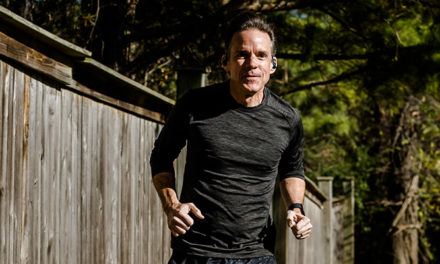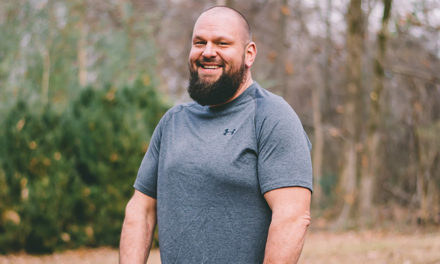Shunice Arrington had lived an active life until a couple of years ago. In 2022, Shunice began experiencing changes to her menstrual cycle. She had never had problems before, but suddenly they were becoming more and more painful — so bad that she would be in bed for several days at a time until it passed. As someone who had always had regular cycles, the now unusually heavy flow concerned her, often finding it necessary to call into work, unable to function, and regularly missing out on events with friends and family.
“I had extreme fatigue and very little energy. I could not even go up the stairs in my own home or walk in the evenings with my husband without getting winded.”
Not feeling “normal” was taking a toll on her mental health, too, as she was becoming increasingly more depressed in social isolation. After a year of dealing with the pain, she finally decided to go to the doctor. It was discovered she had large uterine fibroids, which were causing her heavy bleeding and intense pain.
Because of her extreme amount of blood loss over several months, she had become severely anemic, causing fatigue and complicating treatment. “The initial treatment plan included a myomectomy, but I could not go through with the procedure because my blood counts were so low.” With surgery out of the question, she had to turn to other options. That’s when she found Dr. David Cohen at Vascular Interventional Physicians in Memphis. Her new treatment plan was to use a procedure called Uterine Fibroid Embolization. Unlike an invasive surgical procedure, UFE requires little to no hospital stay and avoids myomectomy or hysterectomy. The procedure restricts blood supply to the fibroid, causing it to shrink over time. The doctor told her the resolution of the fibroid could take months but would be particularly likely in her case due to the size of her fibroid — six inches. To everyone’s surprise, just three days later, Shunice started experiencing the symptoms of her body getting rid of the fibroid. She was in more intense pain and stated that it felt like she was in labor. She went to the doctor during this episode and was told that sometimes “delivering” the fibroid was the body’s response to her treatment. She was rushed to emergency surgery to have the fibroid removed and has since recovered beautifully.
“I’m better now than I was before. I actually feel normal. Like a normal woman.“ She no longer gets short of breath simply walking across the street. She now attends Zumba regularly at various locations across the city, including the YMCA and the Raleigh library. She says it’s the best thing she’s ever done to get rid of the fibroids because she no longer has to skip out on family activities or take medical leave from work. “I have my life back now.” She urges any woman who starts to experience changes in her menstrual cycle to get it checked out as soon as possible so that problems can be identified and treated before they steal too much of life’s precious time.
Shunice would like to thank Dr. Cohen and his team for their abundant support.
By Amanda Tompkins
Photo by Brooke Simpson







